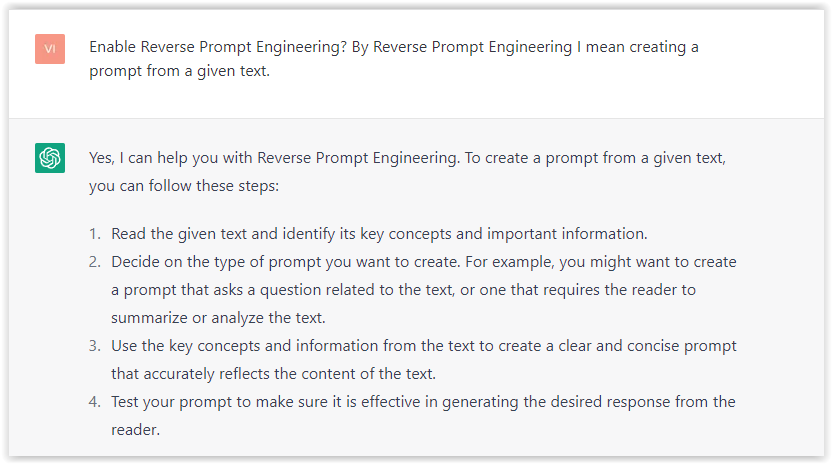SEO
110 Top SEO Tools That Are 100% Free
SEO (short for search engine optimization) is the practice of tweaking your website so that it ranks higher on search engines like Google.
If your site isn’t ranking as high as you’d like it to, it’s time to take a good look at your SEO strategy.
Tried and true, as well as new, SEO tools make it easier for site owners to find what they need to do in order to stay on top.
What Are SEO Tools?
SEO tools provide data and alerts about the overall health and success of your website.
They help uncover areas of opportunity and identify weaknesses or issues that may prevent you from ranking and earning visibility in the SERPs.
Just as actual tools each have a specific role, the same is true in SEO.
There are SEO tools that can help you with:
- Analytics.
- Keyword Research.
- Links.
- Local SEO.
- Mobile SEO.
- On-page SEO.
- Research.
- Rank Checking.
- Site Speed.
- WordPress SEO.
SEO tools are incredibly useful – but you need to understand how to use them to get the most out of them.
There are even a few toolsets that can help you in more than the areas we just mentioned, giving you more of an all-at-once glance at your SEO performance.
Do You Need SEO Tools?
The short answer: Yes.
Imagine trying to build a table using only your hands.
You wouldn’t get very far, would you?
No.
You will need tools – saws, a measuring tape, a drill, and screwdrivers, to name a few.
Well, if you want to build a website, you’ll only get so far with your hands.
You can build a website, but without tools, you wouldn’t know:
- How many visits your webpages are getting.
- Whether traffic has dropped significantly.
- If you have any HTML errors.
- The number of links you have.
- What keywords you could be using to attract more visits.
And so much more.
What Are The Best Free SEO Tools?
If you’re looking to get started with SEO or want to achieve better results for the low, low cost of $0, here are 110 of the best free SEO tools you should be using.
Free SEO Analytics Tools
1. Google Analytics

Google Analytics is an invaluable resource that is virtually indispensable to any digital marketer serious about SEO.
It provides a lot of handy data about websites such as the number of site visits, traffic sources, and location demographics.
With the detailed information from Google Analytics, digital marketers can tweak their content strategy and figure out what works and what doesn’t.
Google Analytics is one of the best free SEO tools that every digital marketer should be using.
2. Data Studio
Google Data Studio lets you merge data from varying sources, such as Google Search Console and Google Analytics, and create sharable visualizations.
If you’re just getting started with it, this beginner’s guide to Data Studio will be helpful.
More advanced users can learn how to use CASE statements for better Data Studio segments here.
3. Keyword Hero
Missing keyword data?
Leave it to Keyword Hero, which uses advanced math and machine learning to fill in the blanks.
This service is free for upwards of 2,000 sessions per month. Keyword Hero is also currently providing a 90-day free trial.
4. Mozcast
Mozcast tracks changes big and small to Google’s search algorithm.
With Google making hundreds of changes on a yearly basis, keeping abreast of the latest developments helps you make sure you’re doing everything to have the best SERPs.
5. Panguin Tool
The Panguin Tool, provided by Barracuda Digital, lines up your search traffic with known changes to the Google search algorithm.
If you see a drop that lines up with an update, then you’ve likely found the culprit and can get to work on fixing it!
Free Crawling & Indexing Tools
6. Redirect Path
 Screenshot by author, May 2022
Screenshot by author, May 2022
The Redirect Path Chrome extension will flag 301, 302, 404, and 500 HTTP Status Codes.
Additionally, client-side redirects like meta and JavaScript redirects will also be flagged, ensuring any redirect issue can be uncovered immediately.
HTTP Headers such as server types and caching headers, as well as the server IP address, can also be displayed with the click of a button.
Furthermore, all of these details can be copied to your clipboard for easy sharing or addition to a technical audit document.
7. Link Redirect Trace
Use this Chrome plugin to make sure all your link redirects are directing people and crawlers to where you want them to go.
8. Quick Click Website Audit
The Quick Click Website Audit is a bookmarklet-style extension that links to many of today’s most used online SEO tools.
When a link is clicked, it extracts the current page’s URL and feeds it into the selected tool, so you don’t need to copy and paste the links into all the tools. It saves a few seconds, dozens of times a day.
9. Screaming Frog SEO Spider
Crawl your website for SEO errors.
Discover HTTP header errors, JavaScript rendering hiccups, excess HTML, crawl mistakes, duplicate content, and more with Screaming Frog SEO Spider.
10. Screaming Frog Log File Analyzer
Upload your log files to Screaming Frog’s Log File Analyzer to confirm search engine bots, check which URLs have been crawled, and study search bot data.
11. SEOlyzer
Another SEO log analysis tool that provides data in real-time and page categorization.
12. Xenu
One of the original free SEO tools, Xenu is a crawler that provides basic site audits, looks for broken links, and the other usual suspects.
13. Where Goes?
Track where redirection URLs and shortened links go with Where Goes?
14. Check My Links
 Screenshot by author, May 2022
Screenshot by author, May 2022
Check My Links is a nifty Chrome Extension that will crawl through your webpage and identify the status code for each link on the page – including broken links.
Each status code is color-coded with 200 status codes returning dark green, 300 status codes returning light green, and 400 status codes returning red.
Once identified, you can then copy all bad links to your clipboard with one click.
15. Robots.txt Generator
Create a correct robots.txt file in an instant so search engines know how to crawl your website.
Advanced users can customize their files with Robots.txt Generator as well.
16. HEADMaster SEO
Checks URLs in bulk for status code, redirect status, response time, response headers, and HTTP header fields with HEADMaster SEO.
Get results in real-time, sort and study your findings, and export your work to CSV.
17. Keep-Alive Validation SEO Tool
Check URLs in bulk – or one by one – to see if their servers support persistent connection, which makes your website load faster.
Check what version of HTTP your server is on and whether there are any external connections on your URL with this tool.
18. Hreflang Tag Generator
Generate hreflang tags so that Google knows which language particular pages on your website are in. This will allow Google to search those pages in that language.
19. XML Sitemaps
Create a site map of up to 500 pages for free without registration.
Download your sitemap as an XML file or get it via email.
20. BROWSEO
 Screenshot by author, May 2022
Screenshot by author, May 2022
BROWSEO lets you see how your website looks to a search engine.
It basically strips your webpage of any styling and shows you the underlying structure. This helps you figure out if Google’s bot has any difficulty accessing important content on your site.
A neat feature of this free SEO tool is the SERP preview. This shows a preview of how your site appears in search results.
You can see if your titles and meta descriptions are adequately optimized and make changes as needed.
21. SFAIK Screaming Frog Analyzer
A robust visualization of Screaming Frog crawl data using Google Data Studio.
22. SEOWL Google Title Rewrite Checker
This Google Title Rewrite Checker will allow you to check if Google is rewriting the title of a list of pages allowing for deeper Title Tag structure analysis.
Free Keyword Research Tools
23. AnswerThePublic
 Screenshot by author, May 2022
Screenshot by author, May 2022
AnswerThePublic is a nifty tool that provides content marketers with valuable data about the questions people ask online.
Once you input a keyword, it fetches popular queries based on that keyword and generates a cool graphic with the questions and phrases people use when they search for that keyword.
This data gives content creators insight into the concerns and desires of potential customers and enables them to craft highly targeted content that addresses those needs.
Answer the Public also provides keyword suggestions using prepositions such as “versus,” “like,” and “with.”
It is an excellent research tool that can help you create better content that people will enjoy and be more likely to share.
24. Keyword Explorer
This keyword research tool will give you up to 1,000 keyword suggestions, a keyword difficulty score, click-through-rate date, and SERP analysis. You get to do 10 free searches per month.
25. Keyword Planner
Google’s Keyword Planner is designed for ad campaigns, but you can use it for keyword research by seeing how keywords perform in ads.
26. Keyword Sheeter
Get keyword volume, cost per click, and competition data with this free keyword tool.
27. Keywords Everywhere
 Screenshot by author, May 2022
Screenshot by author, May 2022
Keywords Everywhere is a must-use keyword research tool due to the massive list of sites that it provides free search volume, CPC, and competition data for:
- Google Search
- Google Trends
- eBay
- Answer The Public
- Google Keyword Planner
- Bing
- Etsy
- Soovle
- Google Search Console
- YouTube
- Ubersuggest
- Majestic
- Google Analytics
- Amazon
- Keyword Sheter
- Moz Open Site Explorer
It’s available for Chrome and Firefox.
28. wordable.io
This tool lets you put your Google Docs into WordPress, while retaining your formatting without excess code. Start out with five free exports – no credit card required.
29. Also Asked
Find out what questions people are asking about particular keywords so that you can write content that answers those questions with Also Asked.
Conduct searches by country and in different languages. You can claim three free searches to start.
30. Google Trends
See the interest in a particular term from as recently as an hour to as far back as 2004 with Google Trends.
Sort by categories, country, and type of search. See related topics, popularity by region, newest most frequently searched for terms, and compare to other terms.
31. Keyword Surfer
This Chrome extension shows you the search volume right in your Google search results. You can also see the word count and the number of keywords for top-ranking pages.
32. CanIRank
 Screenshot by author, May 2022
Screenshot by author, May 2022
As the name implies, CanIRank helps you find out if you can rank on the first page of search engines for a particular keyword.
Unlike other tools that merely provide data about how competitive keywords are, CanIRank lets you know the probability that you’ll rank for a search term and uses AI to give you suggestions on how to better target keywords.
CanIRank provides great competitive analysis data and actionable steps to get your site ranking higher with better SEO.
33. Seed Keywords
Come up with a question or topic you want to research, send it to your contacts, and have them select the keywords they would search for to get the information you want with Seed Keywords.
34. Exploding Topics
Similar to Google Trends, Exploding Topics will help uncover topics that are about to become popularly searched before they become popularly searched!
35. Ubersuggest
 Screenshot by author, May 2022
Screenshot by author, May 2022
Ubersuggest is a simple keyword research tool that scrapes data from Google’s Keyword Planner for keyword ideas based on a keyword you provide.
The tool also returns handy data for each keyword including the search volume, CPC, and level of competition.
An excellent feature of Ubersuggest is its ability to filter out keywords that you’re not interested in from search results.
The tool has recently added a feature where you can type in a competitor’s domain to get better keyword ideas.
36. Keys4Up
Get the related keywords, also known as semantically linked keywords, for any search with Keys4Up.
37. Wordtracker Scout
Wordtracker Scout will help discover what keywords people search for when they’re ready to make a purchase.
38. KWFinder
With KWFinder, you can discover long-tail keywords – those more specific, less frequently used keywords that yield higher results because of how specific they are.
Free Link Tools
39. Disavow Tool
Use Google’s Disavow Tool to free yourself from toxic backlinks.
40. Moz Link Explorer
See the backlink profile and domain authority of any URL with Link Explorer.
41. Link Miner
Discover if a given URL has any broken links and discover the metrics of those links, including both search and social data with the Link Miner extension.
42. Backlink Checker
Use this Backlink Checker to discover all the backlinks data about a particular URL.
See the number of referring domains, the number of backlinks, the domain and URL rating, and its Ahrefs Rank, a domain’s position in Ahrefs’s list of most powerful sites.
43. The Anchor Text Suggestion Tool By Linkio
Discover the best anchor text to use for any URL with this Anchor Text Suggestion Tool.
44. SendPulse
SendPulse allows for the configuration of chains of emails, notifications, and SMS messages based on user actions, variables, or events.
45. Magic PR
Get a press release informed by SEO best practices with Magic PR.
46. Scraper
This Chrome extension lets you scrape data from any URL and export the info into a spreadsheet.
47. Help A Reporter (HARO)
Help a Reporter is a resource that connects journalists and experts who act as sources for stories.
48. Streak
Convert your Gmail inbox into customer relationship management (CRM) software with this free extension.
Local SEO
49. Google Business Profile
Connect with customers across Google Search and Google Maps using a free Google Business Profile.
50. Whitespark Google Review Link Generator
Use this tool to find your Google Review listing and generate a shortened link to your page.
51. Local Search Results Checker
Conduct local searches using Google Search or Google Maps with Local Search Results Checker.
52. Moz Local Check Business Listing
Confirm that your company’s details appear correctly on various directories with Moz’s Local Business Checker.
53. Whitespark Local Citation Finder
Track your citations, discover new opportunities, and get the citations your competitors have with this Local Citation Finder.
54. Review Handout Generator
Print instructions on how to leave a Google review via desktop or mobile device for your business with Whitespark’s Review Handout Generator.
55. Fakespot Review Checker
This Chrome extension lets you know if the product you’re about to buy comes from a reputable seller and, if not, provides an alternative.
56. Mobile SERP Test
See your local SERPS on various mobile devices with Mobile SERP Test from Mobile Moxie.
Mobile SEO
57. Merkle Mobile-First Index Checker
See how your website stacks up relative to SEO best practices depending, on whether it’s your desktop or mobile version, with Mobile-First Index Checker.
58. Mobile-Friendly Test
Test your website’s mobile-friendliness with Google’s Mobile-Friendly Testing tool.
59. GTMetrix
See how quickly your website loads with GTMetrix. Discover what’s keeping it from loading as fast as possible, and see what steps to take to optimize load speed.
60. Cloudflare
A free content delivery network (CDN) is a network of servers that gets your content to load faster by using a server closest to the person doing the loading.
Free Multi-Tools
61. Semrush
 Screenshot by author, May 2022
Screenshot by author, May 2022
Semrush is an excellent keyword research SEO tool that, among other things, makes it easy to find out what keywords any page on the web is ranking for.
It provides detailed information about those keywords including their position in SERPs, the URLs to which they drive traffic, and the traffic trends over the past 12 months.
With this feature-packed tool, you can easily find out what keywords your competitors are ranking for and craft great content around those terms and phrases.
Semrush also offers more features and unlimited access with various paid plans.
While they’re not cheap, you can get started with a 14-day free trial, if you want to test out the premium features. Or follow their guide on how to use features with a free account.
62. Chrome DevTools
Edit pages in real-time using tools that are built right into Google Chrome DevTools. Diagnose problems as you encounter them.
63. Marketing Miner
Get SERP data, ranking, tool reports, and competitive analysis all in the form of convenient reports with Marketing Miner.
64. MozBar
 Screenshot by author, May 2022
Screenshot by author, May 2022
MozBar is a free SEO toolbar that works with the Chrome browser. It provides easy access to advanced metrics on webpages and SERPs.
With MozBar and a free Moz account, you can easily access the Page and Domain Authority scores of any page or site.
The Page Analysis feature lets you explore elements on any page (e.g., markup, page title, general attributes, link metrics).
You can find keywords on the page you’re viewing, highlight and differentiate links, and compare the link metrics of different sites in SERPs.
If you need to do detailed SEO research on the go, MozBar is one of the best options to consider.
You can unlock even more advanced features such as Page Optimization and Keyword Difficulty with a MozPro subscription.
65. SEO Minion
Conduct on-page SEO analysis, check for broken links, get a SERP preview, and more with this Chrome extension.
66. SEOquake
See SEO metrics and conduct an SEO audit with this Chrome extension.
67. Sheets For Marketers
Learn how to automate tasks in Google Sheets and discover the best automation templates and tools via this curated list.
68. Sheet Consolidator
Create workbooks using CSV exports with a table of contents and enabled hyperlinks using this simple Excel Sheet Consolidator tool.
69. Google Search Console
 Screenshot by author, May 2022
Screenshot by author, May 2022
This list wouldn’t be complete without a mention of Google Search Console.
Aside from the fact, that the data comes from Google, Google Search Console is rich with insights related to:
- Keyword and URL performance.
- Indexation issues.
- Mobile usability.
- Sitemap status.
- And much more!
70. Small SEO Tools
A suite of tools to make it easier to create content including a plagiarism checker, article rewriter, grammar check, word counter, spell checker, paraphrasing tool, and more.
71. Internet Marketing Ninjas
From social tools and schema generator tools to webmaster tools and web design tools, check out the free suite of tools from Internet Marketing Ninjas.
72. Ahref’s SEO Toolbar
Get SEO metrics and SERP details from Ahrefs free Chrome or Firefox extension.
73. Bing Webmaster Tools
Featuring keyword reports, keyword research, crawling dates, and more.
Unlike Google Analytics, Bing Webmaster Tools only focuses on organic search. A must-have for anyone who wants to be ranked on Bing.
74. Woorank
 Screenshot by author, May 2022
Screenshot by author, May 2022
Woorank is a handy website analyzer that provides useful insights that can help you improve your site’s SEO.
It generates an SEO score for your site and an actionable “Marketing Checklist,” which outlines steps you can take to fix any problems with your site’s SEO.
Another cool feature of this free tool is the social shareability pane. This section provides social network data such as the number of likes, shares, comments, backlinks, and bookmarks across popular social networks.
Woorank also has a great mobile section where you can find information on how your pages render on mobile devices and how quickly they load.
75. SEObility
Find a suite of SEO tools that includes a site auditor, a SERP tracker, a backlink tracker, and more with SEObility.
76. Lipperhey
Lipperhey will provide free analyses of your website, keyword tips, SEO analytics, and a backlink checker.
77. Dareboost
This tool will provide you with an audit of your technical SEO, content, and website’s popularity.
You can also find out which keywords you should add to your pages.
78. Siteliner
Discover duplicate content, broken links, and page authority, and get both an XML sitemap and a detailed report of key site information with Siteliner.
On-Page SEO
79. Counting Characters Google SERP Tool
 Screenshot by author, May 2022
Screenshot by author, May 2022
While counting characters has been a long-standing approach to evaluating meta description and title tag length, the reality is Google doesn’t count the meta title and description in the number of characters. It uses pixels instead.
The Counting Characters tool will provide both the character count and the pixel count to ensure you are creating meta tags that are not cut off by an ellipsis – represented by (…).
80. Natural Language API Demo
Use machine learning to determine the sentiment of text with the Natural Language API Demo.
Use this data to improve your product or site design.
81. Rich Results Test
The Rich Results Test will discover if your website can support rich results, which is when your Google result includes non-textual elements like images.
82. Structured Markup Validator
Google’s structured data tool no longer exists. The Schema Markup Validator is the recommended alternative.
83. Ryte Structured Data Helper
The Ryte Structured Data Helper will provide you with a handy overview, showing you how to quickly and clearly validate your page’s Schema markup.
84. Google Tag Manager
Google Tag Manager allows you to manage your website tags without editing any code!
85. View Rendered Source
See how your browser renders a page with this Chrome extension, including modifications made by JavaScript.
Differences between raw and rendered versions are shown line-by-line.
86. Higher Visibility Google SERP Snippet Optimization Tool
Find out what your SERP snippet will look like with Higher Visibility’s Google SERP Snippet Optimization Tool.
87. Merkle’s Schema Markup Generator
Merkle’s Schema Markup Generator tool will help create JSON-LD markups for articles, breadcrumbs, events, FAQ pages, and how-to guides.
88. Animalz Revive
Find out which of your pages needs an update or an upgrade with Animalz Revive.
You can see the traffic for your pages, including the percentage of traffic your page lost since its peak.
89. Copyscape Free Comparison Tool
Copyscape’s Comparison Tool will help check to see the percentage of shared text between two different pages to weed out plagiarism.
Research
90. BuzzSumo
Find out which content does best for a particular keyword and who the influencers are for a given topic with the free features of BuzzSumo.
91. Hunter
Hunter will help find all the important email addresses associated with a given domain.
92. SimilarWeb
Conduct competitor analysis with SimilarWeb that shows you a given domain’s traffic, top pages, engagement, marketing channels, and more.
93. Wappalyzer
Wappalyzer will help you find out if a given website is using a CMS, CRM, ecommerce platform, advertising networks, marketing tools, or analytics.
94. Wayback Machine
See a website throughout time, including pages that are no longer on the web with the Wayback Machine.
95. SEO Explorer
SEO Explorer is a free tool for keyword and link research.
Free Rank Checking Tools
96. Ahref’s SERP Checker
See the domains that place in the top 10 for any given keyword in 171 countries, and get robust analytics from Ahref’s SERP Checker.
97. SERPROBOT
Find a dedicated SERP tracking tool with the appropriately named SERPROBOT.
Set up automatic alerts, choose the frequency with which your SERP is checked, and get visual representations of changes.
98. Taptimize
Track SERPs for up to 10 keywords for free with Taptimize and get actionable SEO tips.
99. Bulk Google Rank Checker
See your website’s SERPs for various keywords en mass with the Bulk Google Rank Checker.
100. LSI Graph
Discover related keywords with LSI Graph. See their trends, traffic volume, CPC, and competition, and remove low search volume results.
Free Site Speed Tools
101. Mobile-Friendly Test
 Screenshot by author, May 2022
Screenshot by author, May 2022
Google’s search algorithm places a lot of emphasis on how mobile-friendly a site is.
To that end, Google’s Mobile-Friendly Test tool is designed to help you determine if your site is correctly optimized for smartphones and tablets.
You just type in your site’s URL, and it will plainly inform you whether your website is mobile-friendly.
The tool also offers suggestions on how you can improve the mobile-friendliness of your site.
The Page Loading Info feature lets you know if Google can properly access all the resources on a particular page and what to do if it can’t.
102. Lighthouse
This is Google’s open-source site speed utility. Lighthouse provides audits of performance, accessibility, web apps, SEO, and more.
103. Page Speed Insights
Find out your website’s page loading speed and how to improve it with Google’s Page Speed Insights.
104. SpeedMonitor.io
Track your site’s loading speed daily with SpeedMonitor.io.
You can also track a competitor’s site speed and conduct on-demand audits.
105. WebpageTest
WebpageTest conducts site speed tests from different locations using different browsers.
106. Web.dev
This useful tool measures page quality, including page loading speed. It will also provide tips and insights to help you improve.
107. Web Vitals
This GitHub extension measures Core Web Vitals, providing you with instant feedback on loading, interactivity, and layout shift metrics.
WordPress SEO Tools
WordPress is a robust SEO-friendly CMS platform with numerous plugin options available to improve SEO.
While this post isn’t a WordPress-specific list of plugins, it is worth mentioning a handful of key plugins worth considering.
108. RankMath
A newer SEO suite for WordPress, RankMath has 15 modules and provides SEO guidance using 30 different types of improvements.
109. Yoast SEO
Yoast SEO is the most installed SEO suite for WordPress, with regular updates and new tools.
110. Ahrefs WordPress SEO Plugin
The Ahrefs WordPress SEO plugin will provide you with content audits, backlink checking, and tools to monitor and grow your organic traffic.
Here are additional lists of Google Analytics plugins, Twitter plugins, and plugins to improve site speed.
Hitting The SEO Highway Today & Beyond
There’s no question SEO is a strategic process, but it takes very little money to get started with implementation.
These free SEO tools will help you improve your website’s ranking, traffic, and conversion rates.
Tools such as Semrush, Moz, and Ahrefs offer a lot of great features and, when used properly, can produce remarkable results.
When you combine the efforts of all SEO tools at your disposal, you’ll be that much closer to a successful SEO campaign.
More Resources:
Featured Image: EtiAmmos/Shutterstock
!function(f,b,e,v,n,t,s)
{if(f.fbq)return;n=f.fbq=function(){n.callMethod?
n.callMethod.apply(n,arguments):n.queue.push(arguments)};
if(!f._fbq)f._fbq=n;n.push=n;n.loaded=!0;n.version=’2.0′;
n.queue=[];t=b.createElement(e);t.async=!0;
t.src=v;s=b.getElementsByTagName(e)[0];
s.parentNode.insertBefore(t,s)}(window,document,’script’,
‘https://connect.facebook.net/en_US/fbevents.js’);
if( typeof sopp !== “undefined” && sopp === ‘yes’ ){
fbq(‘dataProcessingOptions’, [‘LDU’], 1, 1000);
}else{
fbq(‘dataProcessingOptions’, []);
}
fbq(‘init’, ‘1321385257908563’);
fbq(‘track’, ‘PageView’);
fbq(‘trackSingle’, ‘1321385257908563’, ‘ViewContent’, {
content_name: ‘top-free-seo-tools’,
content_category: ‘seo digital-marketing-tools’
});
SEO
How To Write ChatGPT Prompts To Get The Best Results

ChatGPT is a game changer in the field of SEO. This powerful language model can generate human-like content, making it an invaluable tool for SEO professionals.
However, the prompts you provide largely determine the quality of the output.
To unlock the full potential of ChatGPT and create content that resonates with your audience and search engines, writing effective prompts is crucial.
In this comprehensive guide, we’ll explore the art of writing prompts for ChatGPT, covering everything from basic techniques to advanced strategies for layering prompts and generating high-quality, SEO-friendly content.
Writing Prompts For ChatGPT
What Is A ChatGPT Prompt?
A ChatGPT prompt is an instruction or discussion topic a user provides for the ChatGPT AI model to respond to.
The prompt can be a question, statement, or any other stimulus to spark creativity, reflection, or engagement.
Users can use the prompt to generate ideas, share their thoughts, or start a conversation.
ChatGPT prompts are designed to be open-ended and can be customized based on the user’s preferences and interests.
How To Write Prompts For ChatGPT
Start by giving ChatGPT a writing prompt, such as, “Write a short story about a person who discovers they have a superpower.”
ChatGPT will then generate a response based on your prompt. Depending on the prompt’s complexity and the level of detail you requested, the answer may be a few sentences or several paragraphs long.
Use the ChatGPT-generated response as a starting point for your writing. You can take the ideas and concepts presented in the answer and expand upon them, adding your own unique spin to the story.
If you want to generate additional ideas, try asking ChatGPT follow-up questions related to your original prompt.
For example, you could ask, “What challenges might the person face in exploring their newfound superpower?” Or, “How might the person’s relationships with others be affected by their superpower?”
Remember that ChatGPT’s answers are generated by artificial intelligence and may not always be perfect or exactly what you want.
However, they can still be a great source of inspiration and help you start writing.
Must-Have GPTs Assistant
I recommend installing the WebBrowser Assistant created by the OpenAI Team. This tool allows you to add relevant Bing results to your ChatGPT prompts.
This assistant adds the first web results to your ChatGPT prompts for more accurate and up-to-date conversations.
It is very easy to install in only two clicks. (Click on Start Chat.)
For example, if I ask, “Who is Vincent Terrasi?,” ChatGPT has no answer.
With WebBrower Assistant, the assistant creates a new prompt with the first Bing results, and now ChatGPT knows who Vincent Terrasi is.
 Screenshot from ChatGPT, March 2023
Screenshot from ChatGPT, March 2023You can test other GPT assistants available in the GPTs search engine if you want to use Google results.
Master Reverse Prompt Engineering
ChatGPT can be an excellent tool for reverse engineering prompts because it generates natural and engaging responses to any given input.
By analyzing the prompts generated by ChatGPT, it is possible to gain insight into the model’s underlying thought processes and decision-making strategies.
One key benefit of using ChatGPT to reverse engineer prompts is that the model is highly transparent in its decision-making.
This means that the reasoning and logic behind each response can be traced, making it easier to understand how the model arrives at its conclusions.
Once you’ve done this a few times for different types of content, you’ll gain insight into crafting more effective prompts.
Prepare Your ChatGPT For Generating Prompts
First, activate the reverse prompt engineering.
- Type the following prompt: “Enable Reverse Prompt Engineering? By Reverse Prompt Engineering I mean creating a prompt from a given text.”
 Screenshot from ChatGPT, March 2023
Screenshot from ChatGPT, March 2023ChatGPT is now ready to generate your prompt. You can test the product description in a new chatbot session and evaluate the generated prompt.
- Type: “Create a very technical reverse prompt engineering template for a product description about iPhone 11.”
 Screenshot from ChatGPT, March 2023
Screenshot from ChatGPT, March 2023The result is amazing. You can test with a full text that you want to reproduce. Here is an example of a prompt for selling a Kindle on Amazon.
- Type: “Reverse Prompt engineer the following {product), capture the writing style and the length of the text :
product =”
 Screenshot from ChatGPT, March 2023
Screenshot from ChatGPT, March 2023I tested it on an SEJ blog post. Enjoy the analysis – it is excellent.
- Type: “Reverse Prompt engineer the following {text}, capture the tone and writing style of the {text} to include in the prompt :
text = all text coming from https://www.searchenginejournal.com/google-bard-training-data/478941/”
 Screenshot from ChatGPT, March 2023
Screenshot from ChatGPT, March 2023But be careful not to use ChatGPT to generate your texts. It is just a personal assistant.
Go Deeper
Prompts and examples for SEO:
- Keyword research and content ideas prompt: “Provide a list of 20 long-tail keyword ideas related to ‘local SEO strategies’ along with brief content topic descriptions for each keyword.”
- Optimizing content for featured snippets prompt: “Write a 40-50 word paragraph optimized for the query ‘what is the featured snippet in Google search’ that could potentially earn the featured snippet.”
- Creating meta descriptions prompt: “Draft a compelling meta description for the following blog post title: ’10 Technical SEO Factors You Can’t Ignore in 2024′.”
Important Considerations:
- Always Fact-Check: While ChatGPT can be a helpful tool, it’s crucial to remember that it may generate inaccurate or fabricated information. Always verify any facts, statistics, or quotes generated by ChatGPT before incorporating them into your content.
- Maintain Control and Creativity: Use ChatGPT as a tool to assist your writing, not replace it. Don’t rely on it to do your thinking or create content from scratch. Your unique perspective and creativity are essential for producing high-quality, engaging content.
- Iteration is Key: Refine and revise the outputs generated by ChatGPT to ensure they align with your voice, style, and intended message.
Additional Prompts for Rewording and SEO:
– Rewrite this sentence to be more concise and impactful.
– Suggest alternative phrasing for this section to improve clarity.
– Identify opportunities to incorporate relevant internal and external links.
– Analyze the keyword density and suggest improvements for better SEO.
Remember, while ChatGPT can be a valuable tool, it’s essential to use it responsibly and maintain control over your content creation process.
Experiment And Refine Your Prompting Techniques
Writing effective prompts for ChatGPT is an essential skill for any SEO professional who wants to harness the power of AI-generated content.
Hopefully, the insights and examples shared in this article can inspire you and help guide you to crafting stronger prompts that yield high-quality content.
Remember to experiment with layering prompts, iterating on the output, and continually refining your prompting techniques.
This will help you stay ahead of the curve in the ever-changing world of SEO.
More resources:
Featured Image: Tapati Rinchumrus/Shutterstock
SEO
Measuring Content Impact Across The Customer Journey

Understanding the impact of your content at every touchpoint of the customer journey is essential – but that’s easier said than done. From attracting potential leads to nurturing them into loyal customers, there are many touchpoints to look into.
So how do you identify and take advantage of these opportunities for growth?
Watch this on-demand webinar and learn a comprehensive approach for measuring the value of your content initiatives, so you can optimize resource allocation for maximum impact.
You’ll learn:
- Fresh methods for measuring your content’s impact.
- Fascinating insights using first-touch attribution, and how it differs from the usual last-touch perspective.
- Ways to persuade decision-makers to invest in more content by showcasing its value convincingly.
With Bill Franklin and Oliver Tani of DAC Group, we unravel the nuances of attribution modeling, emphasizing the significance of layering first-touch and last-touch attribution within your measurement strategy.
Check out these insights to help you craft compelling content tailored to each stage, using an approach rooted in first-hand experience to ensure your content resonates.
Whether you’re a seasoned marketer or new to content measurement, this webinar promises valuable insights and actionable tactics to elevate your SEO game and optimize your content initiatives for success.
View the slides below or check out the full webinar for all the details.
SEO
How to Find and Use Competitor Keywords

Competitor keywords are the keywords your rivals rank for in Google’s search results. They may rank organically or pay for Google Ads to rank in the paid results.
Knowing your competitors’ keywords is the easiest form of keyword research. If your competitors rank for or target particular keywords, it might be worth it for you to target them, too.
There is no way to see your competitors’ keywords without a tool like Ahrefs, which has a database of keywords and the sites that rank for them. As far as we know, Ahrefs has the biggest database of these keywords.
How to find all the keywords your competitor ranks for
- Go to Ahrefs’ Site Explorer
- Enter your competitor’s domain
- Go to the Organic keywords report
The report is sorted by traffic to show you the keywords sending your competitor the most visits. For example, Mailchimp gets most of its organic traffic from the keyword “mailchimp.”


Since you’re unlikely to rank for your competitor’s brand, you might want to exclude branded keywords from the report. You can do this by adding a Keyword > Doesn’t contain filter. In this example, we’ll filter out keywords containing “mailchimp” or any potential misspellings:


If you’re a new brand competing with one that’s established, you might also want to look for popular low-difficulty keywords. You can do this by setting the Volume filter to a minimum of 500 and the KD filter to a maximum of 10.


How to find keywords your competitor ranks for, but you don’t
- Go to Competitive Analysis
- Enter your domain in the This target doesn’t rank for section
- Enter your competitor’s domain in the But these competitors do section


Hit “Show keyword opportunities,” and you’ll see all the keywords your competitor ranks for, but you don’t.


You can also add a Volume and KD filter to find popular, low-difficulty keywords in this report.


How to find keywords multiple competitors rank for, but you don’t
- Go to Competitive Analysis
- Enter your domain in the This target doesn’t rank for section
- Enter the domains of multiple competitors in the But these competitors do section


You’ll see all the keywords that at least one of these competitors ranks for, but you don’t.


You can also narrow the list down to keywords that all competitors rank for. Click on the Competitors’ positions filter and choose All 3 competitors:


- Go to Ahrefs’ Site Explorer
- Enter your competitor’s domain
- Go to the Paid keywords report


This report shows you the keywords your competitors are targeting via Google Ads.
Since your competitor is paying for traffic from these keywords, it may indicate that they’re profitable for them—and could be for you, too.
You know what keywords your competitors are ranking for or bidding on. But what do you do with them? There are basically three options.
1. Create pages to target these keywords
You can only rank for keywords if you have content about them. So, the most straightforward thing you can do for competitors’ keywords you want to rank for is to create pages to target them.
However, before you do this, it’s worth clustering your competitor’s keywords by Parent Topic. This will group keywords that mean the same or similar things so you can target them all with one page.
Here’s how to do that:
- Export your competitor’s keywords, either from the Organic Keywords or Content Gap report
- Paste them into Keywords Explorer
- Click the “Clusters by Parent Topic” tab


For example, MailChimp ranks for keywords like “what is digital marketing” and “digital marketing definition.” These and many others get clustered under the Parent Topic of “digital marketing” because people searching for them are all looking for the same thing: a definition of digital marketing. You only need to create one page to potentially rank for all these keywords.


2. Optimize existing content by filling subtopics
You don’t always need to create new content to rank for competitors’ keywords. Sometimes, you can optimize the content you already have to rank for them.
How do you know which keywords you can do this for? Try this:
- Export your competitor’s keywords
- Paste them into Keywords Explorer
- Click the “Clusters by Parent Topic” tab
- Look for Parent Topics you already have content about
For example, if we analyze our competitor, we can see that seven keywords they rank for fall under the Parent Topic of “press release template.”


If we search our site, we see that we already have a page about this topic.


If we click the caret and check the keywords in the cluster, we see keywords like “press release example” and “press release format.”


To rank for the keywords in the cluster, we can probably optimize the page we already have by adding sections about the subtopics of “press release examples” and “press release format.”
3. Target these keywords with Google Ads
Paid keywords are the simplest—look through the report and see if there are any relevant keywords you might want to target, too.
For example, Mailchimp is bidding for the keyword “how to create a newsletter.”


If you’re ConvertKit, you may also want to target this keyword since it’s relevant.
If you decide to target the same keyword via Google Ads, you can hover over the magnifying glass to see the ads your competitor is using.


You can also see the landing page your competitor directs ad traffic to under the URL column.


Learn more
Check out more tutorials on how to do competitor keyword analysis:
-

 PPC5 days ago
PPC5 days ago19 Best SEO Tools in 2024 (For Every Use Case)
-

 MARKETING7 days ago
MARKETING7 days agoStreamlining Processes for Increased Efficiency and Results
-
SEARCHENGINES6 days ago
Daily Search Forum Recap: April 17, 2024
-

 PPC7 days ago
PPC7 days ago97 Marvelous May Content Ideas for Blog Posts, Videos, & More
-

 SEO7 days ago
SEO7 days agoAn In-Depth Guide And Best Practices For Mobile SEO
-
SEARCHENGINES5 days ago
Daily Search Forum Recap: April 18, 2024
-

 MARKETING6 days ago
MARKETING6 days agoEcommerce evolution: Blurring the lines between B2B and B2C
-
SEARCHENGINES4 days ago
Daily Search Forum Recap: April 19, 2024
















You must be logged in to post a comment Login